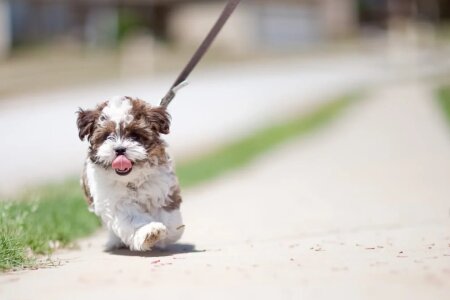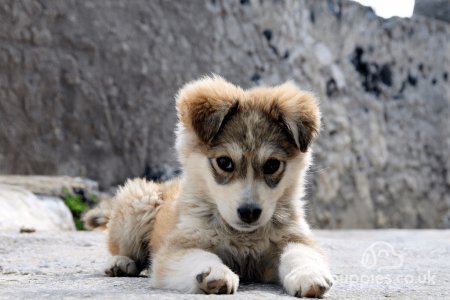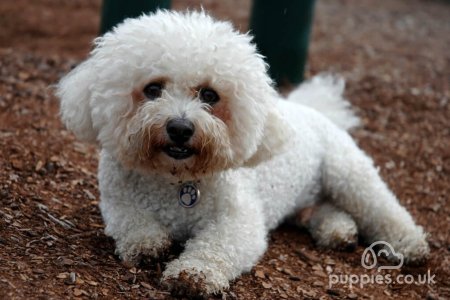Why Pekingese are great
Pekingese dogs were originally bred to be companions for Chinese royalty. As a result, they are friendly and loving. This nature makes them ideal as household companions. These beautiful little dogs are fun to have around due to their smart and opinionated personality. They are always keen to let their humans know how they feel. For anyone who is looking for a loving and engaging companion, Pekingese puppies and adult dogs are the ideal choice.
Some highlights:
- Pekingese are smart little dogs. This means that they can learn how to be well behaved, as long as they have respect for their humans.
- Due to their breeding as companion dogs, Pekingese get along well with people. They relish the opportunity to spend as much time as possible with their human companions.
- The Pekingese breed originated in Beijing (known as Peking at the time). This means that Pekingese puppies and dogs thrive in the cold and are completely comfortable with UK winters.
Things to consider when looking at Pekingese for Sale
Some downsides to the Pekingese:
- These little dogs come with a big snore. This is due to their short noses. It's surprising just how much noise they can make.
- Pekingese have a lot of wrinkled skin around their face. This means that they can have problems with issues such as dermatitis and infections. For this reason, anyone who has a Pekingese in their home needs to pay close attention to keeping the skin folds clean and dry.
- Pekingese are small dogs so they can be prone to get injured. This means that they are not ideal household companions for young children.
History of Pekingese
Pekingese were originally companions for the Chinese imperial family. They were, and still are, revered in China. The legend behind these proud little dogs is that they are lions which were shrunk by Buddha. Pekingese have been well-known in the Western world since the 1860s when they were brought back by the British who invaded China. They are popular as companion dogs and still have the same dignity and strength of character that they have always been known for.
Appearance
How big is the Pekingese?
The Pekingese is a small breed of dog. These dainty little canines measure between 15.5 and 23 cms.
How heavy is a Pekingese?
In addition to being small in stature, Pekingese are also lightweight companions. They usually weigh between 3.2 and 6.4 kg.
What Colour is the Pekingese?
There are several different colours which have become acceptable for the Pekingese breed over the years. Most Pekingese are either gold, red or sable in colour. However, there are rarer coat colours such as cream, black, white and black & tan. Occasionally, a slate blue Pekingese can be found. However, this is a very rare occurrence.
Temperament
Do Pekingese make good guard dogs?
Pekingese are not big enough to chase intruders away. However, they were used as mini guard dogs by Chinese Royals in the 19th Century. They were highly effective due to their very vocal barking when intruders were around. They still have this useful quality today.
Do Pekingese bark a lot?
Pekingese are known for barking when they sense that intruders are approaching. This barking can be very useful. However, it can also be an issue if it causes a disturbance for the neighbours.
Are Pekingese easy to train?
Pekingese puppies and older dogs have very strong personalities. This can make them wilful little creatures. They do not like to be bossed around. This means that their humans need to gain their respect in order to train them successfully. For this reason, Pekingese need to be welcomed into a home where their interaction with humans is firm but fair.
Are Pekingese good with children?
Buying a Pekingese puppy is not a good choice for families where young children are present. This is because youngsters can be rougher than they intend to. Pekingese can be hurt if this happens. They will also defend themselves if they are the victims of rough play. This can cause them to be snappy with children.
Are Pekingese good with other pets?
Pekingese prefer to be in a home where there are other Pekingese present. However, if they are raised with other breeds of dog, or cats, they will usually be sociable.
Can I leave a Pekingese Alone?
Pekingese were originally bred to be companions. They still love to be around people. If a Pekingese is left without company for a significant period of time they become upset. This can cause them to bark a lot and forget their house training. For this reason, Pekingese are best welcomed into a home where someone is around during the day.
Health
How long do Pekingese live?
Buying a Pekingese puppy is a commitment for a long period of time. These little dogs usually have a long life which lasts between 12 and 15 years.
How much exercise does a Pekingese need?
Pekingese were not bred to need endless amounts of exercise, or to enjoy dog sports. However, they do need a certain amount of exercise to keep them healthy. Usually, 2-4 moderately long walks each day are enough.
What are Pekingese Common health issues?
There are some health problems which a Pekingese can be prone to. It helps to know about these potential issues when buying Pekingese puppies.
Brachycephalic obstructive airway syndrome (BOAS) is a common problem that Pekingese can suffer from. It causes elongation of the soft palate and narrowed nostrils. This can make breathing difficult. It's possible to resolve this issue using medical management or surgery.
Eyelid problems can happen due to the excessive amount of skin that covers the face of a Pekingese. The eyelids can either drop downwards or towards the eye. This causes irritation to the eyes of a Pekingese. Pekingese can also be prone to eye infections which are due to the prominence of their eyes.
Degenerative disc disease can lead to back problems for the Pekingese. This can lead to pain and potential paralysis.
Luxating patellas is a problem where the kneecaps slip out of place temporarily. This makes it difficult for the Pekingese to bear its weight.
Care
How much space do I need for a Pekingese?
As long as they get a couple of moderate walks each day, Pekingese have all the exercise that they need. They are more than happy to spend plenty of time curled up with their humans. This means that it's not necessary to have a lot of space to welcome a Pekingese into the family.
How much grooming do Pekingese need?
Pekingese need to be brushed on several occasions each week. If this brushing does not happen, it's easy for their fur to become matted. It may also be necessary to clip the coat of a Pekingese, in order to make them more comfortable.
Average costs
How much does it cost to keep a Pekingese?
As a rough guide in pricing:
Cost to buy: roughly £850 for a well-bred Pekingese puppy
Other costs (Vet, Food etc): £70 per month
Specific Buying Guide
You can read our general buying guide here (
/advice-on-buying-a-puppy/), with the most important thing being going to view your Pekingese Puppy, seeing it with its mother, and checking the quality of the breeder.
More specifically, here is some Pekingese puppy buying advice:
- When buying Pekingese puppies, it's important to find one that has nostrils which are wide and open. This is because Pekingese are a flat-nosed breed which can have trouble breathing. The most well-bred puppies are bred to give them the best chance of having a decent quality of breathing.
- It's a good idea to choose a Pekingese puppy that is not hiding away in the corner or bossing the other puppies. An evenly tempered, friendly and approachable puppy is the best option.
Other reading, Adopting Pekingese Puppies and Rescue Organisations
A big thank you to the following sources who helped to shape this article:
https://www.akc.org/expert-advice/lifestyle/10-facts-about-pekingese-dogs/
https://dogtime.com/dog-breeds/pekingese
https://www.yourpurebredpuppy.com/reviews/pekingese.html
https://www.dogbreedhealth.com/pekingese/
https://www.pdsa.org.uk/taking-care-of-your-pet/looking-after-your-pet/puppies-dogs/small-dogs/pekingese
https://www.pekingeseclub.co.uk/
https://www.sovpeke.co.uk/











